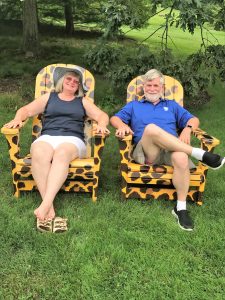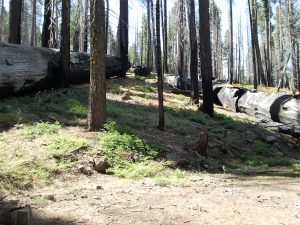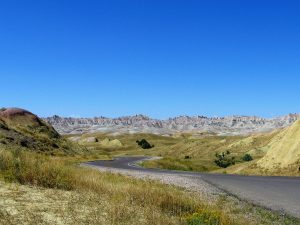1 Kings 17:8-16
Then the word of the Lord came to him: “Get up, go to Zarephath that belongs to Sidon and stay there. Look, I have commanded a woman who is a widow to provide for you there” (17:8-9 CSB).
In our last article about Elijah, we left him by a brook which had dried up. That dried up brook was no mistake in Elijah’s life, but a definite part of a sequence in God’s purpose to reveal his glory. When we read the Biblical storyline, it is very easy to get wrapped up in the characters, miraculous events, and moral issues. We must remember that the Bible reveals the story of God’s glory in Jesus Christ through salvation by judgment. We must ask, “What does this tell us about the surpassing value and shining brilliance of our God?” However, it is also true that the Lord continued to prepare his servant. Elijah’s alone time with God was about to move to a slightly larger circle.
Certainly, most of us would rather do without the tests that come in the school of faith. We would rather receive the blessings which faith receives without the actual exercise of faith. We can be like children who want to go to amusement parks, but who dislike the long lines when they get there.
Part of our problem is that we must trust in the true God, whom we cannot fully understand and whom we cannot control. Even Elijah, who had such great faith as to stop the rain and the dew for three years, had to humbly depend upon God. Remember at this point in his life, Elijah was living in the realm of his prayer of faith; that is, there was no rain because he prayed that God wouldn’t send rain. His faith produced a situation that required more faith in God, which in turn provided the Lord with another opportunity to make known his greatness and love. Let us look at three lessons about the difficulty of faith. We will begin with the first in this article.
Faith is difficult because of the obedience that it requires. It requires us to do exactly what the Lord says. We must operate a computer program as it was written to receive the benefits of that program. If we attempt to do things that the application was not designed to do, we frustrate ourselves. “This stupid app!” No, it isn’t stupid; perhaps we’re demonstrating our own ignorance of what it can do or visualizing dreams that it can do what it isn’t designed to do. For Elijah, it put two limits on his actions.
- Elijah could not leave the brook until God gave him orders. He had to sit and watch the brook dry up. This had been a daily process.
- Elijah had to leave the brook when God ordered. He had to walk away from the place where God had provided for him to go to another. Abraham had to leave Ur to go to the Promised Land. Israel had to leave Egypt for the same reason. The way forward required obedient faith in God’s promises. The Lord is not as interested in our resourcefulness and ingenuity as our obedient faith.
Faith is difficult because it requires us to put our hope in God instead of our wisdom or apparently favorable circumstances. Elijah could not argue with God about where God sent him. Don’t join “The Jonah Debating Society.” Yet it seemed counter to God’s wisdom.
God sent him to the home territory of his enemy, Jezebel. Among other things, this would demonstrate the weakness of her malice. Elijah will learn the meaning of Psalm 23:5: You prepare a table before me in the presence of my enemies (NIV). Once I received twenty dollars while on a trip from an unlikely person, whom I later found out was causing problems for my parents. They could hardly believe what had happened, but God knew my need.
The Lord sent Elijah to a Gentile land. This could have provided Elijah with reasons to question what God was doing.
- Hadn’t Naomi and David both gotten themselves into difficulties by leaving Israel?
- Weren’t there Jewish people who could provide for him? cf. Luke 4:25-26.
- Could he expect anyone there to care for God’s prophet?
He could not dispute about the apparent contradiction in God’s plan. The whole plan would seem unnatural at his time: a woman taking care of a man; a widow supplying the needs of a preacher. One greater than Elijah was provided for in a similar way (Luke 8:2-3). The prophet would have to swallow his pride. Some people are too arrogant to receive God’s gifts. The whole plan would have seemed unworkable. A widow would usually be among the poor of the land.
Meditate on the following:
- When you have confidence in the sovereignty of God, you obey his commands. You find that his grace is sufficient for you. 2 Corinthians 12:9.
- It is usually God’s way to use the weak, the lowly, and the despised to do his work. 1 Corinthians 1:26-29. This is for his glory!
Grace and peace, David

 Luke 2:21-24
Luke 2:21-24 Luke 1:1-4
Luke 1:1-4 Acts 10:37-38
Acts 10:37-38 Leviticus 9
Leviticus 9
 Psalm 10:1-11
Psalm 10:1-11 Ruth 1:16-18
Ruth 1:16-18 Ruth 1:6-9
Ruth 1:6-9 Ruth 1:1-4:22
Ruth 1:1-4:22